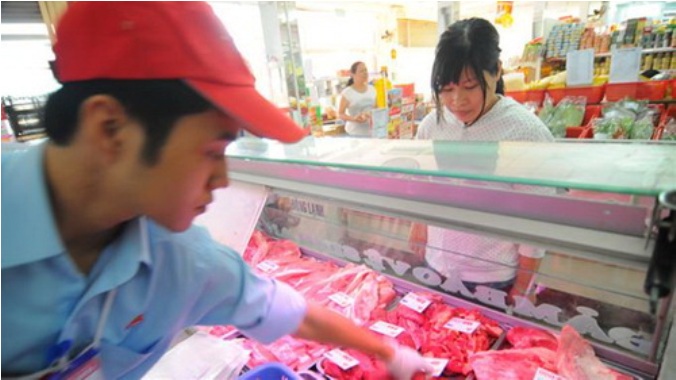Australian beef is gaining more market share in both Ho Chi Minh City, Vietnam’s biggest metropolis, with around 10-12 million people, and the 90-million-strong Vietnamese national market.
Currently, Australian beef enjoys a 70 percent market share in Ho Chi Minh City, and this number continues to rise.
According to the Ministry of Industry and Trade, Vietnam consumes around 4,000 cows daily, mainly from imported sources. Beef sourced from Australia is on the rise.
The reason for the surging imports is strong demand. Vietnam can produce about 370,000 metric tons of beef annually, just enough to serve the areas where the beef is sourced from.
In June, the ministry forecast that Vietnam would import around 150,000 heads of cattle from Australia, more than doubling the approximate number of 67,000 imported last year.
But imports reached 120,000 cattle in just the first seven months of this year, or over 17,142 per month. If this pace continues, Vietnam will have imported 205,000 heads of cattle by the end of 2014.
The January-July statistics have helped Vietnam surpass China to become the 2nd biggest market for Australian beef worldwide, after Indonesia.
Currently, taxes levied on cattle imports from Australia, New Zealand, and the ASEAN countries are at five percent, and cattle byproducts are taxed at eight percent.
This is one of the reasons why local businesses and foreign-owned firms based in Vietnam prefer importing live cattle to frozen byproducts, the trade ministry said.
In July this year, the Vietnam National Animal Husbandry Association revised its plan to import some 150,000 cows from Australia in 2014, up 30,000 from the previous plan, due to strong demand in the first half. Australia had exported 527,000 cows by the end of May, of which 72,000 were shipped to Vietnam, according to Australian statistics.
Increasing cow imports from Australia are making up for plunging supply from Laos and Cambodia, the association said.
As many as 96,000 cows were imported from the two neighboring countries to Vietnam in 2013, down about 47 percent year-on-year.
The volume of Australian cows shipped to Vietnam, on the other hand, increased over 22 times from 2012, to nearly 67,000 heads last year.
Rising demand
Vietnam imported 112,982 heads of cattle from June 2013 to April 2014, according to BeefCentral.com.
In addition, Research Assistant Tess Marslen revealed on futuredirections.org.au that, “demand for imported beef has increased exponentially in Vietnam due to the expansion of the Vietnamese middle class.”
The growing number of supermarkets and the development of meat-oriented chain restaurants have created a huge opportunity for Australia in the live-beef export market, he said, adding that live buffalo exports to Vietnam are also flourishing.
Vietnamese importers are currently investing millions in infrastructure to support the influx of Australian cattle, which are considered to be superior in quality, the research assistant said.
Last year’s imports of Australian live cattle increased more than 1,500 percent over 2012, with trade in the final few weeks of 2013 exceeding the full-year totals from 2012, according to the U.S. Meat Export Federation.
Like us on Facebook or follow us on Twitter to get the latest news about Vietnam!



















































